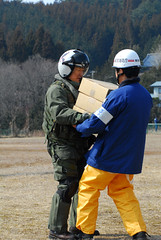 Travel Insurance Review extends deepest sympathies to everyone who lost loved ones or is otherwise affected by the recent disasters in Japan.
Travel Insurance Review extends deepest sympathies to everyone who lost loved ones or is otherwise affected by the recent disasters in Japan.
A s a result of the earthquake, tsunami, and nuclear plant worries, many travelers are scrambling to figure out whether their travel insurance plans provide coverage for current and future travel. Travel insurance companies consider the earthquake and tsunami to be natural disasters and will provide benefits to the extent natural disasters are covered in their policies. You can read the insurance provider position statements here.
For travelers already traveling
As of Friday, March 11, 2011, the tsunami is no longer considered an unforeseen event; therefore, insured travelers in affected areas may be eligible for trip cancellation, trip interruption, and trip delay benefits as well as emergency medical and medical evacuation coverage depending on their travel insurance plans. Some travel plans provide coverage for non medical evacuations when government-issued warnings are in place.
For travelers with future travel plans
Travelers who have purchased travel to Tokyo prior to the earthquake and have not yet departed may have valid reasons to request trip cancellation benefits, but travel that is scheduled to take place later in the year may not be covered once the travel advisory is lifted. For those who purchased ‘cancel for any reason’ coverage, it’s important to cancel within the number of hours prior to your scheduled departure in order for coverage to be effective.
As always, refer to the specific terms and conditions of the policy you purchased to understand coverage terms and exclusions.




